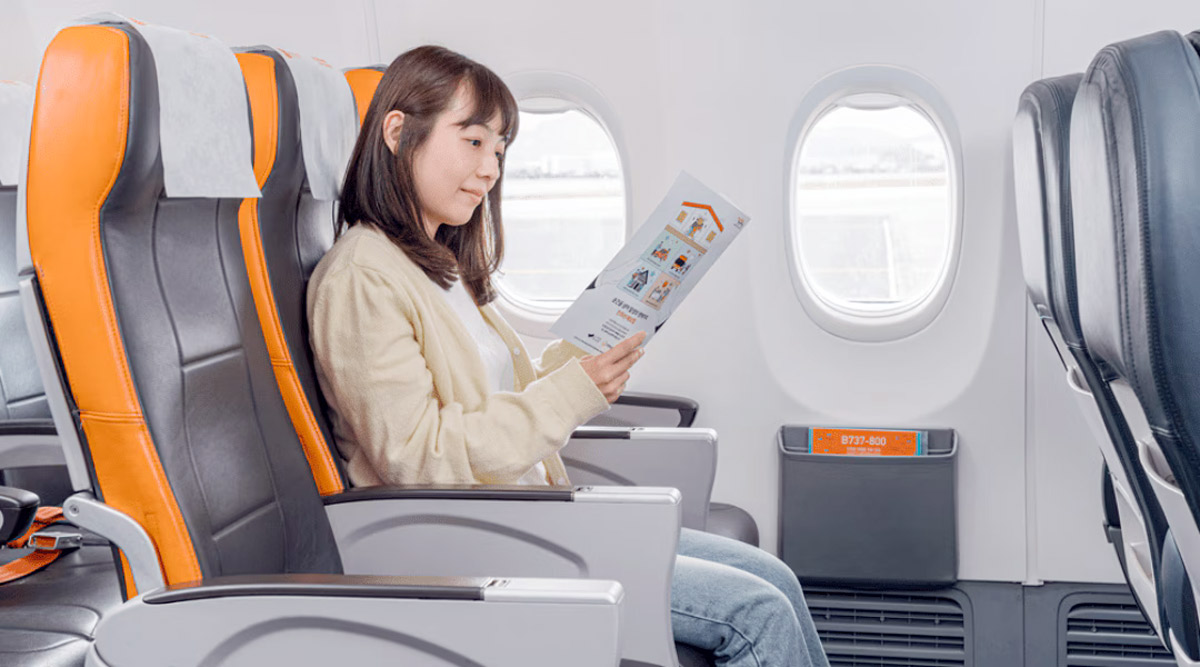Access selected deals available with budget and full-service airlines
Lock any airfare that sounds great. You don’t lose anything if you cancel it
Call us anytime for any assistance. We do not go into hibernation
Your personal and financial information stays secure with us
Jeju Air Co., Ltd., established on January 25, 2005, is South Korea’s first and largest low-cost carrier (LCC), headquartered in Jeju City, Jeju Province. Named after the scenic Jeju Island, a popular tourist destination, the airline has grown significantly since its inception, transforming air travel accessibility in South Korea and the Asia-Pacific region. Operating a fleet of Boeing 737-800s and newer Boeing 737-8 (MAX) aircraft, Jeju Air serves over 60 routes across 44 destinations, primarily in Asia, with a focus on affordability, safety, and innovation. As a founding member of the Value Alliance, the world’s first pan-regional LCC alliance, Jeju Air has solidified its position as a leader in the low-cost aviation market. Below is a detailed overview of Jeju Air’s history, operations, services, corporate profile, and recent developments.

Jeju Air was established as a joint venture between the Aekyung Group, a major South Korean conglomerate, and the government of Jeju Province, aiming to make air travel more affordable and promote tourism to Jeju Island. The airline began operations on June 5, 2006, with domestic flights connecting Jeju International Airport (CJU) to Seoul’s Gimpo International Airport (GMP), a route that has since become the world’s busiest, with frequent daily services. Initially operating with a small fleet of De Havilland Canada Dash 8-400 aircraft, Jeju Air transitioned to Boeing 737-800s to support its rapid expansion.
In its early years, Jeju Air focused on domestic routes, connecting Jeju to major Korean cities like Busan (PUS), Seoul (GMP and ICN), and others. By 2007, the airline ventured into international markets, launching services to destinations in Japan and Southeast Asia. A notable incident occurred on August 12, 2007, when Jeju Air Flight 502, a Dash 8-400, experienced a runway overshoot at Gimhae International Airport in Busan, resulting in injuries to four passengers and the aircraft being written off. Despite this setback, the airline continued to grow, emphasizing safety improvements.
By 2015, Jeju Air had become a dominant player in South Korea’s LCC market, achieving a 28% share of total capacity among Korean LCCs in 2018. The airline went public on the Korea Exchange in 2015, becoming the first Korean LCC to do so, which provided financial stability and supported further expansion. In 2016, Jeju Air co-founded the Value Alliance with other Asia-Pacific LCCs, including Scoot, Cebu Pacific, and Nok Air, enhancing its network through codeshare agreements and coordinated services.
Jeju Air’s growth in the late 2010s was marked by significant international expansion. In 2017, the airline carried over 6 million passengers, generating revenue of $890 million and operating profits of over $80 million. By 2018, it transported 7.3 million international passengers and 4.7 million domestic passengers, with international routes driving growth while domestic traffic remained stable. Key international destinations included Japan (e.g., Tokyo, Osaka, Fukuoka), China, Taiwan, the Philippines, Thailand, Vietnam, Guam, and Saipan. The airline’s focus on short- and medium-haul routes in the Asia-Pacific region catered to budget-conscious travelers, particularly tourists visiting Jeju Island and other regional hotspots.
Jeju Air’s fleet grew to 40 Boeing 737-800s by 2018, recognized globally for their safety and efficiency. The airline also placed an order for 50 Boeing 737 MAX aircraft, with deliveries scheduled from 2022 to 2026, signaling its commitment to modernizing its fleet with fuel-efficient, next-generation aircraft. By the end of 2019, Jeju Air employed approximately 3,100 staff and operated from primary hubs at Jeju International Airport (CJU), Incheon International Airport (ICN), and Gimhae International Airport (PUS), with additional operations from eight Korean airports.